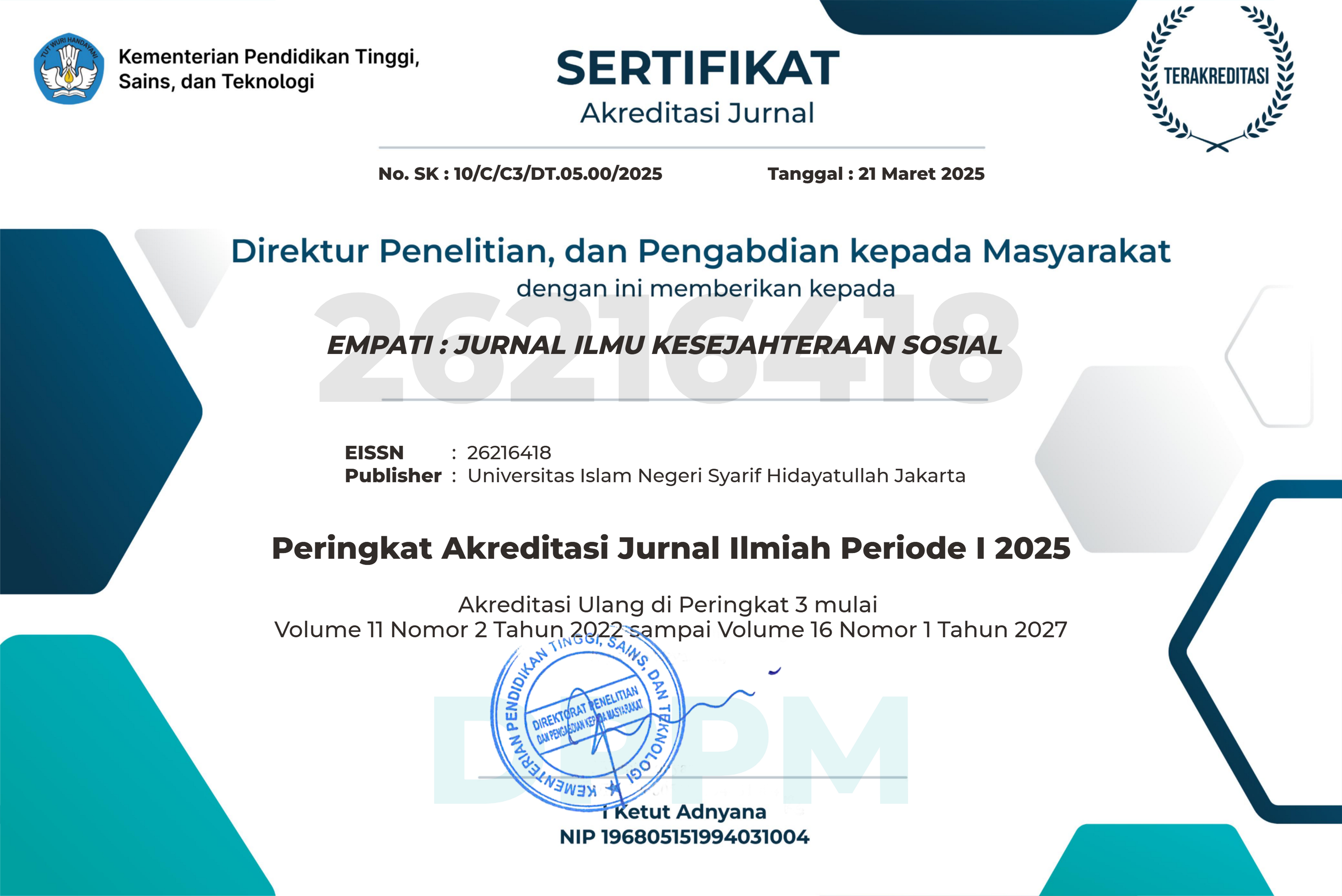Publication Ethics
Publication Ethics
Empati: Jurnal Ilmu Kesejahteraan Sosial adheres to the highest standards of publication ethics based on the Committee on Publication Ethics (COPE) Best Practice Guidelines. This statement clarifies the ethical responsibilities of all parties involved in the publication process, including authors, the Editor-in-Chief, the Editorial Board, peer reviewers, and the publisher.
Screening for Plagiarism
All manuscripts submitted to Empati must include a plagiarism check result showing a similarity score of less than 20% (meaning at least 80% originality). The journal utilizes plagiarism detection tools such as:
- Turnitin
- Plagiarism Checker
- Duplichecker
- Other reputable plagiarism detection tools
Ethical Guidelines for Journal Publication
The publication of peer-reviewed articles is a vital element in developing a reliable and recognized scientific knowledge network. Therefore, ethical standards must be upheld by all individuals participating in the publication process.
Publisher's Responsibilities
UIN Syarif Hidayatullah Jakarta as the publisher of Empati is committed to ensuring ethical oversight throughout the publication process. We guarantee that commercial interests (advertising, reprints, sponsorship) do not influence editorial decisions.
Duties of Editors
- Publication Decisions – Editors decide which manuscripts can be published based on their scholarly value and relevance.
- Fair Evaluation – Manuscripts are assessed solely on academic merit without discrimination based on race, gender, religion, ethnicity, political belief, or citizenship.
- Confidentiality – Editors must ensure confidentiality of submitted manuscripts.
- Conflict of Interest – Editors must not use unpublished materials for personal research without written consent from the author.
Duties of Reviewers
- Contribution to Editorial Decisions – Reviews help authors improve quality and assist editors in publication decisions.
- Promptness – Reviewers who cannot meet deadlines must inform the editors immediately.
- Confidentiality – Manuscripts must not be shared or discussed without permission.
- Objectivity – Reviews should be conducted with clear and constructive feedback.
- Acknowledgment of Sources – Reviewers must identify relevant uncited work and potential plagiarism.
- Conflict of Interest – Reviewers must avoid reviewing manuscripts where conflicts of interest exist.
Duties of Authors
- Reporting Standards – Manuscripts must present accurate and objective findings.
- Originality and Plagiarism – Authors must ensure that all submitted work is original and properly cited.
- Multiple or Redundant Publication – Submitting the same work to multiple journals simultaneously is prohibited.
- Acknowledgment of Sources – Proper recognition of previous studies is mandatory.
- Authorship – Only those who significantly contribute to the study should be listed as authors.
- Conflict of Interest Disclosure – Authors must declare any potential conflicts of interest.
- Corrections – If errors are discovered post-publication, authors must notify editors promptly for corrections or retractions.
Copyright and Licensing
Articles published in Empati: Jurnal Ilmu Kesejahteraan Sosial are licensed under the Creative Commons Attribution-ShareAlike 4.0 International License (CC BY-SA 4.0). This permits use, sharing, and adaptation with proper attribution and under the same license.
© Empati: Jurnal Ilmu Kesejahteraan Sosial — CC BY-SA 4.0 International
















